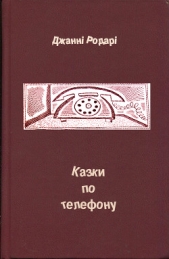Как вести беседу по телефону

Как вести беседу по телефону читать книгу онлайн
Внимание! Книга может содержать контент только для совершеннолетних. Для несовершеннолетних чтение данного контента СТРОГО ЗАПРЕЩЕНО! Если в книге присутствует наличие пропаганды ЛГБТ и другого, запрещенного контента - просьба написать на почту [email protected] для удаления материала
Kate: I say, ducky, I’ve just got an idea. When is this do at Turin [123]? It wouldn’t be at a week-end by any chance?
Joyce: It’s to be a Saturday — best time for a party.
Kate: Well, look here [124], why don’t I come and look after [125] Michael and Jane for the week-end? They’re not such demons [126] as you seem to think, you know. We usually get on fine [127].
Joyce: Oh — it’s terribly sweet of you, but I couldn’t.
Kate: Yes, you could. Now sort it out with James [128] this evening before he goes. I’ll come over [129] on the Friday night, and I’ll stay over the Monday too — I’ll get the day off from the office — so you needn’t get back till late on Monday and you can see a bit of Italy as well.
Joyce: No, I can’t really… Really you shouldn’t.
Kate: Now shut up. No more nonsense. It’s settled. Just see the frig [130] is full of food. I’ll take them to the Zoo on Saturday. And what’s wrong with that trouser suit? You look splendid in it.
Joyce: Do you really think I could? I never thought of a trouser suit for the party…
The telephone rings in a house in the London suburb of Twickenham.
An American Voice: Good morning. Is this Mrs Jones? [131]
Mrs Jones (rather puzzled): I’m Mrs Jones.
American: Oh, fine. I’m Drusilla Applebee, and I’m calling [132] about your house you advertised to rent [133] for the summer months.
Mrs Jones (still rather puzzled): Why yes, when are you going to call?
Mrs Applebee: I mean I’m calling you about it right now [134]. We’re a large family and your house sounded the sort of place we need for July, August and September.
Mrs Jones: Oh, yes, of course. How many are you in your family?
Mrs Applebee: Six, so we hope you have plenty of closets [135].
Mrs Jones: Er — oh, you mean what we call cupboards! Yes, we’ve got plenty of those. And lots of chests of drawers too.
Mrs Applebee: Chests of drawers…?
Mrs Jones: Oh, I should have remembered — the American term is “dresser”, isn’t it?
Switchboard operator (in strong American voice): Are you through?
Mrs Jones: Oh, yes, I’m through.
Mrs Applebee (simultaneously): No, no, we’re not through yet. I’m speaking from my husband’s office and they’re all Americans here. Gosh [136], I’d no idea the British were so different about languages. What do you mean when you say you are through? We mean we’re finished with the call.
Mrs Jones: Oh dear, we mean we’ve been “put through”, we’re connected! Perhaps you’d like to come and see the house and then we needn’t misunderstand each other quite so much.
Mrs Applebee: I should love to see your house, but I’ve no car right now. Can I get to you easily some other way? I’m in Church Street.
Mrs Jones: You can take a 27 bus to the Twickenham roundabout, then use the subway right there…
Mrs Applebee: Excuse me, I didn’t know the subway went to Twickenham.
Mrs Jones: Oh, of course, my fault. The underground doesn’t go to Twickenham. I just meant when you get off the bus you take the passage under the road and when you come up the other side our house is at the end of Aldridge Avenue, opposite. How soon would you like to come?
Mrs Applebee: Is three o’clock today OK?
Mrs Jones: Fine, I’ll expect you.
I. Define the meaning of these phrases. Make up sentences using them.
to ask somebody (to do) a favour, to be disorderly, to be rung up by somebody, to view one’s suggestion (un)favourably, to do something within reason, to give a party, to be wondering if, to redecorate a room (cottage, house), to know where you are, to be up to something, just the usual grind, to be off to (some town or a country), to be a comfort, as a matter of fact, to play hostess, to look nice in some dress, to look after somebody, it is terribly sweet of you, to come over, to stay with somebody, to get a day off, it’s settled, what’s wrong with him?, to be rather puzzled, to sound the sort of place we need, how many are you in the family?, to be so different about languages, to be put through, I should love to do something
II. Rephrase these sentences.
1. I’m ringing to ask you a small favour. 2. I’ll do anything — within reason, of course. 3. We’d love to come. 4. In about two weeks’ time. 5. Well, you know what it’s like. 6. What have you been up to since I saw you last? 7. James is off to Great Britain. 8. This is a comfort. 9. I’ll be tied with my work. 10. This situation has just come up for the first time. 11. I’m not going to play hostess. 12. When is this do in our club? 13. Her children are such little demons. 14. We usually get on fine. 15. It is so sweet of you. 16. Sort it out with Mike first. 17. Wednesday is his day off. 18. It’s settled. 19. What is wrong with him?
III. Give the American terms for:
to let, is that Mrs Jones?, to call up, a cupboard, a chest of drawers, to be through, now, subway, underground
IV. Fill in the missing remarks in these snatches of telephone conversation.
1.A: Is that Harry?
B: …
2. A: I’ve been ringing you for ten minutes and can’t get through. What’s the matter?
B: …
3. A: Could you do me a favour, Jack?
B: …
4.A: We wondered if you and your wife could come to our party.
B: …
5. A: We wanted to invite a lot of interesting people, but our flat is so small.
B: …
6. A: Why did you make up your mind to have your house redecorated?
B: …
7.A: It’s a pity you will not come to our party.
B: …
8. A: What have you been up to since I saw you last?
B: …
9. A: What have you been doing of late?
B: …
10. A: When did this thing come up for the first time?
B: …
11. A: Will there be a big job of entertaining people when they come?
B: …
12. A: When is this do at your Institute?
B: …

























